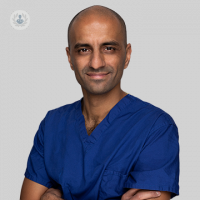Should atrial fibrillation be treated as soon as possible?
Autore:When doctors talk about atrial fibrillation, one phrase comes up time and time again: “atrial fibrillation begets atrial fibrillation”. This a simple way for doctors to explain to their patients that the more atrial fibrillation your heart currently has, the more atrial fibrillation it is likely to have in the future. In a lot of patients who suffer from this condition, they start with infrequent episodes of atrial fibrillation that become more frequent over time. In some cases, this can progress to continuous atrial fibrillation. In his latest article, Dr Saagar Mahida offers his expert insight into the condition.

Should atrial fibrillation be treated early in order to change the trajectory of the disease?
Yes, atrial fibrillation should be treated before it progresses. Patients who suffer from atrial fibrillation can experience a wide range of debilitating symptoms. These can include:
- Palpitations
- Fatigue
- Breathing difficulties
- Dizziness
If atrial fibrillation is allowed to progress, the symptoms can become worse and have a major negative impact on their life. This is one of the reasons atrial fibrillation should be treated promptly.
Another major reason that atrial fibrillation should be treated early is that potentially curative interventions, such as catheter ablation, have a lower success rate if the condition is allowed to progress.
Can atrial fibrillation be prevented?
There are two principal options to prevent atrial fibrillation episodes: medication (antiarrhythmic drugs) and catheter ablation procedures. If we compare the two treatments, medication can suppress atrial fibrillation episodes, whereas catheter ablation can correct the heart abnormality. A more detailed discussion on the choice between antiarrhythmic drug therapy and ablation procedures is included here.

Which is the superior treatment for atrial fibrillation?
Catheter ablation is an established treatment that has been commonly performed for over 20 years. It is the superior treatment for maintaining a normal heart rhythm if it is being performed by surgeons with a lot of experience in the procedure.
As a treatment for atrial fibrillation, there is evidence emerging that catheter ablation could be a first-line treatment. If you suffer from atrial fibrillation, you should have a detailed discussion with a specialist about what the best treatment is for you.
Dr Mahida is a leading consultant cardiologist, with a special interest in atrial fibrillation. He sees patients with atrial fibrillation and other heart rhythm abnormalities at the Spire Manchester Hospital and Spire Liverpool Hospital. If you would like to book a consultation with Dr Mahida you can do so today via his Top Doctors profile.


